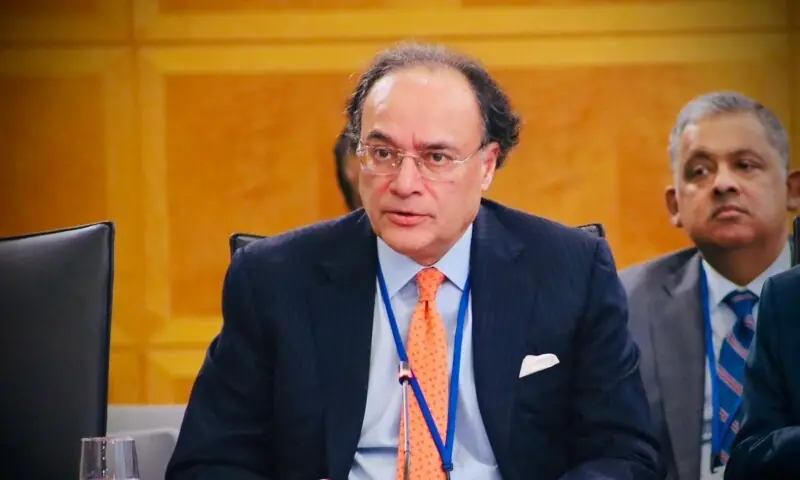WASHINGTON: Finance Minister Muhammad Aurangzeb has said that the International Monetary Fund (IMF) cannot impose any conditions on Pakistan that contradict the country’s national interests, focusing on that all ongoing reforms under the Fund’s programmes are consistent with Islamabad’s own economic priorities.
In this regard, Aurangzeb said the reforms introduced so far have strengthened Pakistan’s economy.
“Please name any IMF-suggested reform that is not aligned with our national interest,” he remarked while responding to a question.
Furthermore, the minister announced that the IMF is expected to release a $1.2 billion tranche by December 31 under the staff-level agreement reached last week.
“The Fund’s executive board will soon meet to review the agreement, and the amount will be released shortly thereafter,” he said.
Furthermore, Aurangzeb concluded his six-day visit to Washington after attending 65 meetings during the World Bank Group’s annual autumn session.
He expressed optimism about finalising a trade and tariff agreement with the United States “within a week or two.”
In addition, he also revealed that the government was close to deciding the future of the Roosevelt Hotel in New York, owned by Pakistan International Airlines (PIA).
So far, seven international consortia, including Citigroup, have submitted bids to advise Pakistan on its privatisation. Islamabad is reportedly pursuing a joint venture model to redevelop the landmark property rather than selling it outright, in line with commitments under its $7 billion IMF programme.
Moreover, Pakistan joined 68 other countries in calling for reforms to the global financial system to support economies most vulnerable to climate change.
The joint appeal was made at the meeting of the Vulnerable 20 (V20) group of finance ministers, held on the sidelines of the IMF and World Bank meetings.
Additionally, Pakistan, ranked first on the Climate Risk Index 2025 despite contributing less than 0.9 percent to global emissions, requires an estimated $40–50 billion annually to cope with climate challenges.
Also Read: IMF, Pakistan make progress toward staff-level deal
The minister also met World Bank President Ajay Banga to discuss Pakistan’s flood response and agricultural resilience.





